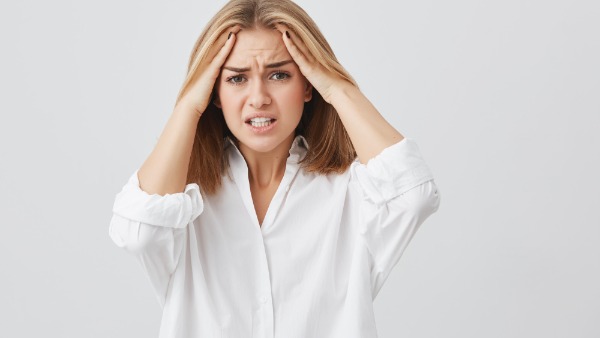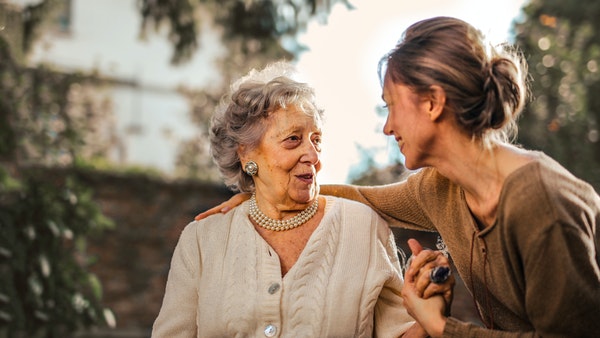Just In
- 2 hrs ago

- 3 hrs ago

- 6 hrs ago

- 7 hrs ago

Don't Miss
- Movies
 Aa Okkati Adakku Trailer: Nani Talks About Jersey Sequel At Allari Naresh's Event; His Answer Surprised Fans
Aa Okkati Adakku Trailer: Nani Talks About Jersey Sequel At Allari Naresh's Event; His Answer Surprised Fans - Education
 UPSC CDS 2 Final Result 2023 Released, Check Out the Details Here
UPSC CDS 2 Final Result 2023 Released, Check Out the Details Here - News
 Shaken By Neha Hiremath's Murder, Hindu Girl Tries To Break Ties With Muslim Friend, Then This Happened
Shaken By Neha Hiremath's Murder, Hindu Girl Tries To Break Ties With Muslim Friend, Then This Happened - Technology
 itel S24 Launched in India with MediaTek Helio G91 SoC, 108 MP Camera, 90Hz Display: Price, Specs
itel S24 Launched in India with MediaTek Helio G91 SoC, 108 MP Camera, 90Hz Display: Price, Specs - Finance
 Stock To Buy: Multibagger Tata Stock Hits 20% Upper Circuit, Gains 37.22% In 1-Week; TP Rs 1100
Stock To Buy: Multibagger Tata Stock Hits 20% Upper Circuit, Gains 37.22% In 1-Week; TP Rs 1100 - Sports
 Legends Cricket League: Manager charged with Match Fixing Allegations after International Stars launch complaint
Legends Cricket League: Manager charged with Match Fixing Allegations after International Stars launch complaint - Automobiles
 Log9 Unveils Amphion & Nexmile – Revolutionizing EV Asset Management
Log9 Unveils Amphion & Nexmile – Revolutionizing EV Asset Management - Travel
Kurnool's Hidden Gems: A Guide To Exploring India's Lesser-Known Treasures
What Is Coronaphobia, A Newly Emerged Phobia? Symptoms, Risk Factors, Diagnosis And Treatments
Coronaphobia is a newly emerged phobia related to COVID-19. According to a study, coronaphobia refers to the persistent fear or anxiety of getting COVID-19 infection. [1]

American Psychiatric Association defined phobia as an anxiety disorder marked by an excessive, persistent, irrational fear of a particular object, person, animal, activity, or situation. People with phobias try to avoid the things or situations that trigger fear in them; when this doesn't happen, they experience anxiety and distress, leading to phobias.
In this article, we will discuss details on coronaphobia. Take a look.

What Exactly Is Coronaphobia?
Pandemics are related to an increased risk of mental health conditions, especially disorders like anxiety, depression, fear and worries. The COVID-19 pandemic has affected numerous diverse areas of life such as personal life and employment.
At first, people feared contracting the infection and dying, however, with time, the fear has extended beyond and evoked other fears such as the fear of infecting others and economic hardship such as unemployment and job instability. [2]
These COVID-19 fear have caused hopelessness, stress, suicidal ideation, loss of social connections and coping deficits. People have increased safety-seeking behaviour and avoiding triggers such as meeting people, travelling or leaving the house. This 'extra' fear or anxiety has led to coronaphobia.

How To Differentiate Between Coronaphobia And Regular Anxiety?
Anxiety exists in our day to day lives; it is caused due to factors like medications, trauma, lifestyle, substance use, panic disorders or childhood experiences.
Getting anxious about the pandemic and its related complications is normal, however, worrying too much about the viral infection could cause coronaphobia.
Covid-19 has caused people hard times fulfilling their commitments due to lockdown and other restrictions; when these commitments are not met due to fear of contracting the virus or say, lack of action, it is coronaphobia.
For example, when a person is unable to buy groceries due to a week of lockdown, they are possibly going to get anxious due to worrying about their basic needs. On the other hand, if a person is unable to buy groceries as they fear going out and contracting COVID-19, this is coronaphobia.
Best Soup For Summer: How To Prepare Sweet And Savory Watermelon Gazpacho
Symptoms Of Coronaphobia
Symptoms of coronaphobia are divided into three categories: physiological (stress over physiological symptoms), cognitive (excessive concern over the personal and occupational loss), and behavioural (changes in behaviour like excessive safety seeking).
Some of the physiological symptoms of coronaphobia include: [3]
- Tremors
- Dizziness
- Palpitations
- Decreased appetite
- Problems in breathing.
- Sleep
- Repetitive thinking of getting tested for the presence of COVID-19 despite having no symptoms.
Some of the cognitive symptoms of coronaphobia include:
- Threat-provoking thoughts lead further to emotional responses like anger, guilt and sadness. For example, thoughts like 'My family is in danger and may die of COVID-19'.
Some of the behavioural symptoms of coronaphobia include: [4]
- Engaging in avoidance behaviour to prevent contracting COVID-19. It includes fear of public transportation, touching any random surface, attending public gatherings and visiting places like markets or beaches.
- Overindulging in safety behaviours like washing or sanitising hands.
- Constantly checking body vitals.
- Self-medicating in the fear of contracting diseases.
- Fear from animals like bats, as COVID-19 is considered to be the origin of the animal.
Risk Factors Of Coronaphobia
Some of the risk factors of coronaphobia may include:
- Being women as the condition is highly prevalent in this specific gender. [1]
- Being old [5]
- Nonsmokers
- Having preexisting self-harming or suicidal thoughts.
- Having closed ones infected with the COVID-19 virus.
- Having preexisting anxiety or depressive symptoms.
- Having preexisting medical conditions like cancer.
- Not satisfied with personal PPE kits for protection against the virus.
- Things such as enforced lockdown and quarantine or those that can disturb the normal life of people.
- Acquiring some new and discomforting habits like wearing a mask.
- Avoiding subconscious acts like not touching the face as it may also lead to the spread of the infection. [6]
- News of leaders contracting covid-19.
- Statement of international bodies like the WHO about the severity and evolving variants of covid-19.
How To Identify Artificially Ripened Mangoes? Types Of Induced Ripening And Their Side Effects
Diagnosis Of Coronaphobia
According to a study, the Coronavirus Anxiety Scale (CAS), a mental health screener, could be used to diagnose fear and anxiety related to covid-19. It calculates the anxiety level based on psychological effects, coping abilities and social behaviours.
If the score is greater or equal to 9 on the CAS, coronaphobia is clinically diagnosed. [7].

Treatment And Management Of Coronaphobia
- Educating people about their condition is the first-line treatment method for coronaphobia. It includes general measures like relaxation techniques and maintaining sleep hygiene.
- Supporting cognitive behavioural therapies like engaging in activities and achievable goals that provide support and encouragement.
- Prescribed medications to reduce anxiety.
- Getting prescribed nutrition such as vitamin D lowers the risks of anxiety and depressive symptoms.
- Maintaining a balanced diet and performing regular exercise.
To Conclude
Covid-19 infection has not only affected physical health but mental health too. Coronaphobia, a newly developed phobia type, has been documented by many studies. However, the condition is still under study and scientists from around the world are exploring its various aspects such as other risk factors and new treatment methods.
Image Sources: Freepik & Pexels
-
 disorders cureIndia May See A Covid Surge In January, Next 40 Days Crucial; Here Is How To Protect Yourself From COVID-19
disorders cureIndia May See A Covid Surge In January, Next 40 Days Crucial; Here Is How To Protect Yourself From COVID-19 -
 disorders cureCOVID Can Trigger Parkinson's Disease: Study
disorders cureCOVID Can Trigger Parkinson's Disease: Study -
 disorders cureCommon COVID Symptoms In Fully Vaccinated Individuals: What You Should Know
disorders cureCommon COVID Symptoms In Fully Vaccinated Individuals: What You Should Know -
 wellnessMild COVID Linked To Life-Threatening Blood Clots, Increased Risk Of Cardiovascular Disease; Study
wellnessMild COVID Linked To Life-Threatening Blood Clots, Increased Risk Of Cardiovascular Disease; Study -
 wellnessCOVID-19 Variants In India: New COVID Variant May Pose Threat To Elderly People
wellnessCOVID-19 Variants In India: New COVID Variant May Pose Threat To Elderly People -
 basicsCovid-19 Linked To Early Onset Of Periods: What You Need To Know
basicsCovid-19 Linked To Early Onset Of Periods: What You Need To Know -
 wellnessCOVID XBB Variants Of Omicron In India: What You Should Know
wellnessCOVID XBB Variants Of Omicron In India: What You Should Know -
 disorders cureNew Omicron Subvariant BQ.1 Detected In Maharashtra: What You Should Know
disorders cureNew Omicron Subvariant BQ.1 Detected In Maharashtra: What You Should Know -
 disorders cureOmicron BF.7 In India, Risk Of Fresh Wave During Diwali: What You Should Know
disorders cureOmicron BF.7 In India, Risk Of Fresh Wave During Diwali: What You Should Know -
 womenPriyanka Chopra Speaks On Climate Change, COVID, Poverty At The UN Sustainable Development Goals 2022 Moment
womenPriyanka Chopra Speaks On Climate Change, COVID, Poverty At The UN Sustainable Development Goals 2022 Moment -
 wellnessCoronavirus Residues Might Be Causing Long COVID: New Study
wellnessCoronavirus Residues Might Be Causing Long COVID: New Study -
 art cultureRenowned Spanish Author Javier Marias Passes Away Due To Lung Infection Post COVID-19
art cultureRenowned Spanish Author Javier Marias Passes Away Due To Lung Infection Post COVID-19


 Click it and Unblock the Notifications
Click it and Unblock the Notifications



